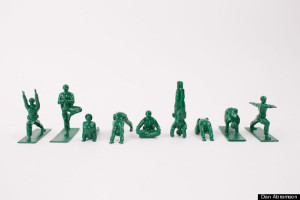“Remember the Sabbath day, to keep it holy.” – Exodus 20:8
Many balk at the idea of observing a biblical commandment. In fact, a recent Pew study showed that most Americans are becoming less religious, choosing not to affiliate themselves with any one particular faith. While many have developed skepticism towards the Bible and monotheistic religions in general, I can’t help but view the Bible’s essence as spiritual – a spiritual expression of ancient peoples attempting to explain their world.
Viewing the Bible as a spiritual book rather than a doctrine allows us to incorporate its wisdom into our daily lives. One of the teachings that I often reflect upon is the separation between ordinary and holy, work and rest – doing versus being. Exodus 20:8-11 teaches us that we observe the Sabbath, “to keep it holy”, by refraining from work. The definition of what constitutes work has resulted in volumes of biblical commentary. It isn’t so much the work aspect that is of any interest, nor a particular day of observance. Rather, in an increasingly hectic world, how do we define what is holy? How are we creating sacred spaces for ourselves?
Prior to discovering meditation, my own answer to the above question would have included occasionally going to synagogue, lighting Sabbath candles, or journaling. While all of these activities do create a sacred space, I never felt truly rested or separate from the activities of daily life. Going to synagogue or making a Sabbath dinner was always a mad dash from work to the next activity. My journaling always seemed to focus on what wasn’t working, lacking perspective for all of wondrous blessings of my life.
It is only through regular meditation and MBSR that I discovered my own interpretation of Exodus 20:8. If I interpret the text through my Jewish experience, I use the Sabbath to refrain from social media, news, comparisons, and other activities that do not promote mindfulness. Instead, I may begin the day with breathing and meditation. I can choose to read a spiritual satisfying text, create a piece of art, or savor the delicious flavors of a Shabbat meal. I may listen mindfully to my husband, friends, or family.
MBSR has also taught me that this holiness can be carried with me throughout my week. I can intentionally carve out a sacred space for each day. Through meditation and mindfulness practice, I am able to strengthen my own religious practice. I meditate, often reflecting on Psalm 19:14, “Let the words of my mouth, and the meditation of my heart, be acceptable in Your sight, Adonai, my strength and my Redeemer.” MBSR allows me the space to reflect on what is holy in my own life, and to live with gratitude.

